27/02/2025
In vitro fertilization (IVF) is a method of assisted reproduction by combining oocytes and sperm outside the body. The embryo formed after the oocyte and sperm are successfully combined will be transferred back to the woman’s uterus. The embryo then implants and develops into a fetus as in cases of natural conception. This is the most modern assisted reproductive method and is very popularly applied to infertile couples today.
Factors affecting the success rate of IVF
For infertile couples preparing to undergo assisted reproduction, the success rate of IVF is very important information, understanding these statistical ratios can help clients choose, make informed decisions before treatment .
The success rate of IVF depends on many factors, which include:
However, not every cycle of treatment results in embryo transfer, and a small percentage of women have either no oocytes or immature oocytes after retrieval or have mature oocytes after retrieval but no fertilization to form an embryo resulting in no embryo to transfer.
Success rate after IVF treatment at Andrology and Fertility Hospital of Hanoi
Currently, 100% of the patients undergoing in vitro fertilization at the Andrology and Fertility Hospital of Hanoi are using ICSI (Intracytoplasmic Sperm Injection) technique to improve their fertility.
Post-treatment success rates are monitored, analyzed and reported periodically every six months. According to statistics from January 2024 to December 2024 are as follows:
Table 1: IVF success rate with female patients under 35 years old:
| Embryo transfer | Embryo day 3 | Embryo day 5 | |
| Total positive pregnancy tests/total pregnancy tests | Fresh embryos | 18/81 (22.2%) | 50/147 (34%) |
| Cryopreservation embryos | 328/638 (51.4%) | 3062/4014 (76.3%) | |
| Clinical pregnancy rate | Fresh embryos | 16/80 (20%) | 39/141 (27.7%) |
| Cryopreservation embryos | 245/616 (39.8%) | 2489/3851 (64.6%) | |
| Progressing pregnancy rate | Fresh embryos | 11/78 (15.4%) | 31/135 (23%) |
| Cryopreservation embryos | 181/567 (31.9%) | 1816/3422 (53.1%) |
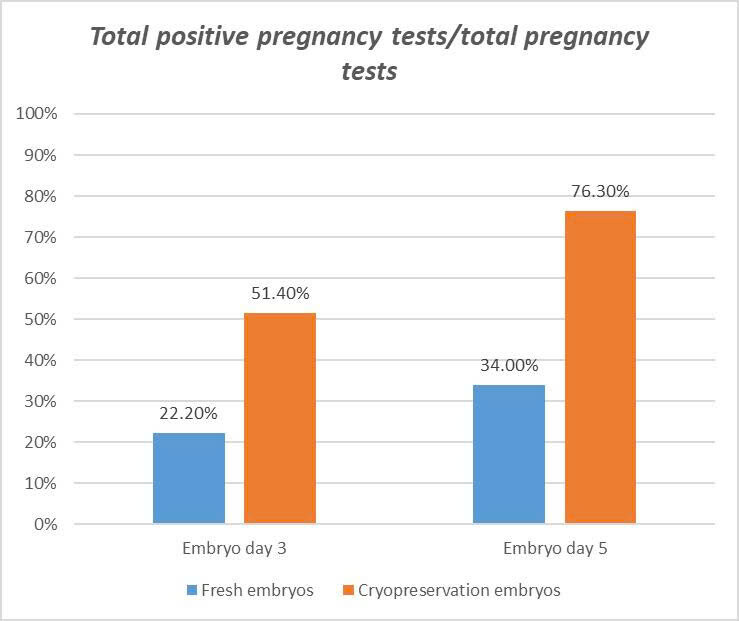
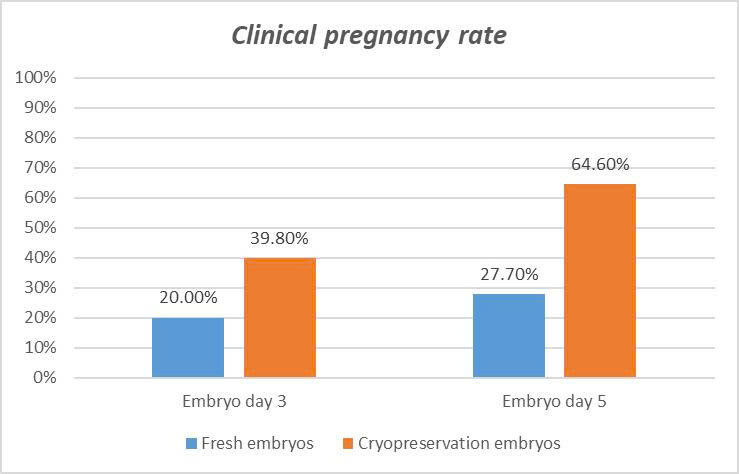
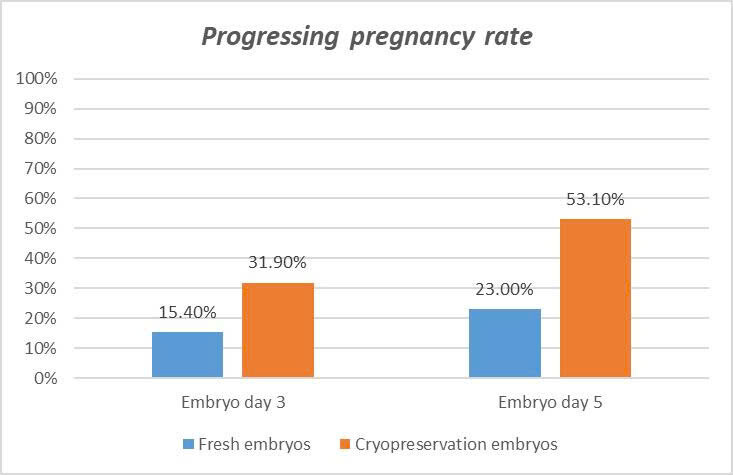
Table 2: IVF success rates with female patients aged 35-39 years:
| Embryo transfer | Embryo day 3 | Embryo day 5 | |
| Total positive pregnancy tests/total pregnancy tests | Fresh embryos | 13/40 (32.5%) | 9/44 (20.5%) |
| Cryopreservation embryos | 96/203 (47.3%) | 489/744 (65.7%) | |
| Clinical pregnancy rate | Fresh embryos | 10/37 (27%) | 7/43 (16.3%) |
| Cryopreservation embryos | 73/197 (37.1%) | 384/722 (53.2%) | |
| Progressing pregnancy rate | Fresh embryos | 9/36 (25%) | 7/42 (16.7%) |
| Cryopreservation embryos | 48/183 (26.2%) | 269/654 (41.1)% |
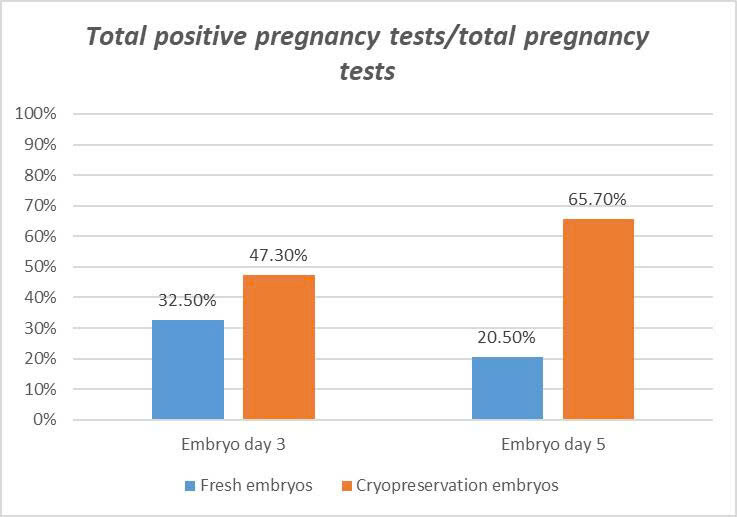

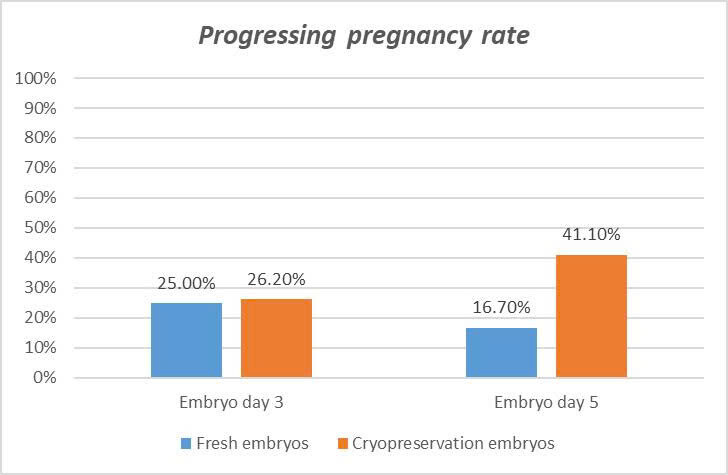
Table 3: IVF success rate with female patients over 40 years old: (Women over the age of 40 years with an instruction for Preimplantation Genetic Testing – PGT before embryo transfer, this is the success rate when IVF/ICSI and PGT are combined):
| Embryo transfer | Embryo day 3 | Embryo day 5 | |
| Total positive pregnancy tests/total pregnancy tests | Fresh embryos | 13/40 (32.5%) | 9/44 (20.5%) |
| Cryopreservation embryos | 96/203 (47.3%) | 489/744 (65.7%) | |
| Clinical pregnancy rate | Fresh embryos | 10/37 (27%) | 7/43 (16.3%) |
| Cryopreservation embryos | 73/197 (37.1%) | 384/722 (53.2%) | |
| Progressing pregnancy rate | Fresh embryos | 9/36 (25%) | 7/42 (16.7%) |
| Cryopreservation embryos | 48/183 (26.2%) | 269/654 (41.1)% |
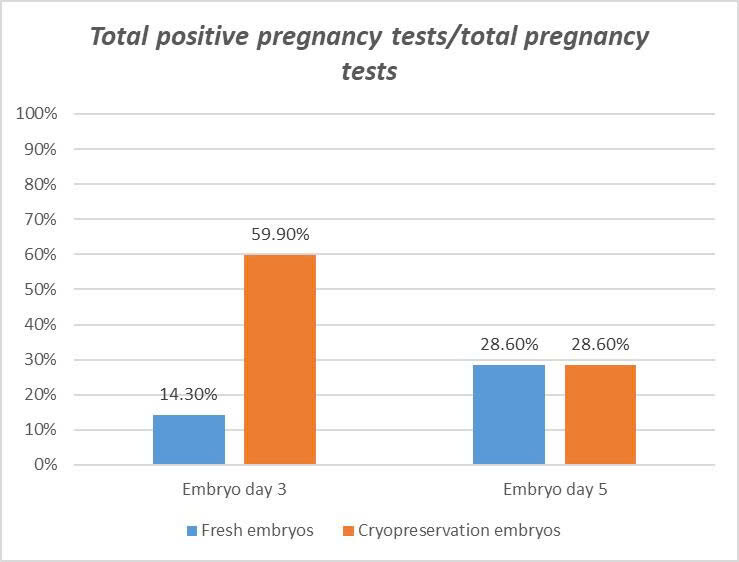

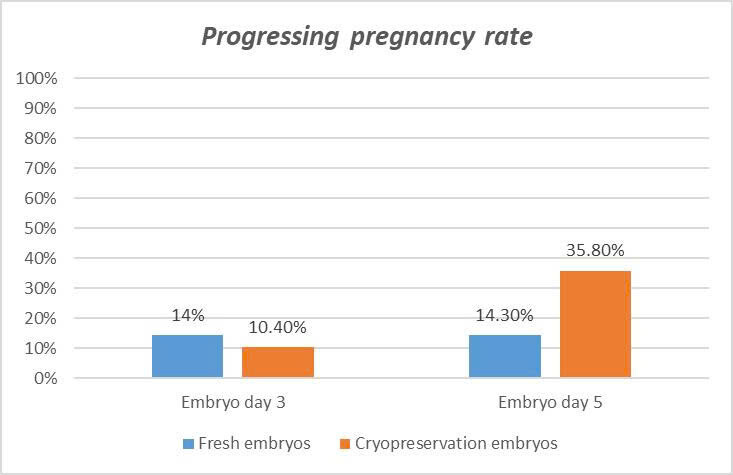
Table 4: Live birth rate in IVF by wife’s age and embryo age:
| Wife’s age | Embryo day 3 | Embryo day 5 |
| <35 years old | 123/556 (22.1%) | 1366/3159 (43.2%) |
| 35-39 years old | 17/122 (13.9%) | 143/410 (34.9%) |
| >40 years old | 5/33 (15.2%) | 19/78 (24,4%) |
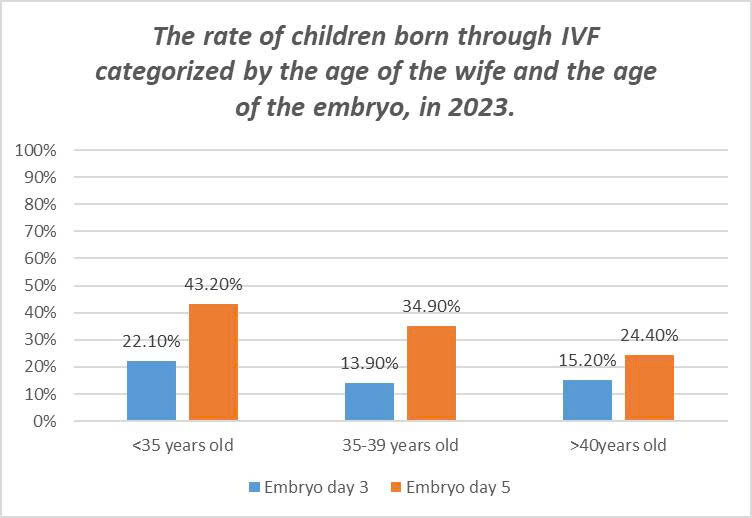
At Andrology and Fertility Hospital of Hanoi, we are proud of the success rates we achieve when patients perform IVF at the hospital and are committed to improving IVF success rates by applying the latest technologies, promote research – continuous training of doctors – embryologists as well as individualization in patient care/treatment.
